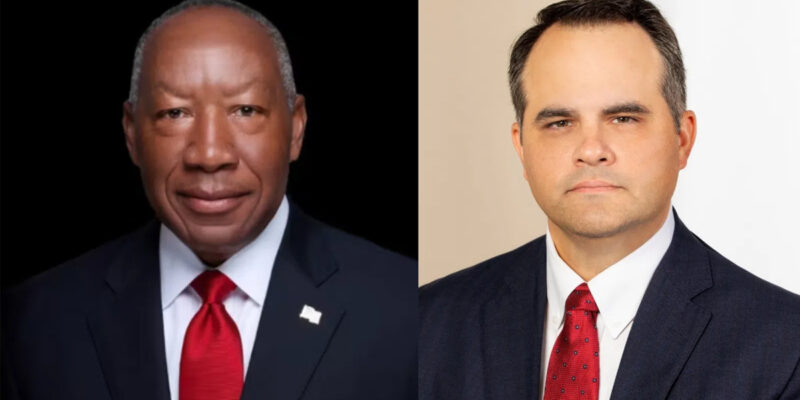The dissenting judges on Louisiana’s Second Circuit Court of Appeals advanced a novel and quite possibly ruinous interpretation of election law rooted in the wisdom of the 1967 movie The Dirty Dozen, when a five-judge panel of the Court ruled upon the ongoing suit to determine the winner of the Caddo Parish sheriff’s contest.
In the film, renegade officer Maj. John Reisman is given the job of taking twelve Army prisoners held for serious crimes during World War II to conduct a near-suicidal mission, in exchange for commutation of their sentences. One, Joseph Wladislaw, landed in prison because he shot an officer displaying cowardice in battle that threatened his entire unit. Upon hearing this during his pitch to Wladislaw to join the unit, Reisman commented that Wladislaw had done right, but made only one mistake: he let someone see him do it.
That’s the philosophy endorsed by Democrats Marcus Hunter and Shonda Stone in their dissent to the majority’s decision in the case authored by Republican Jeff Robinson and backed by Republicans Jeff Cox and Craig Marcotte. The majority upheld the district court decision of ad hoc District Judge Joseph Bleich, who ruled a new election was in order.
In the certified election results, black Democrat Henry Whitehorn won by a single vote over white Republican John Nickelson. The preliminary loser sued for a new election, pointing to registrar of voter errors that allowed two people to vote on election day after voting early, four more under interdiction to vote, and haphazardly counted or rejected five known and possibly more absentee ballots, and that while Nickelson had missed deadlines to challenge these, he made a good faith and diligent effort to do so when these came to his attention. Bleich pointed out, and the appellate court confirmed, that, logically, Nickelson could not have known before or on election day that two double votes had occurred nor that four interdicted voters had done so as well nor had a chance to review any questionable absentee ballots, and as the votes cast, if cast for sheriff, couldn’t be known given the election system, so with a one-vote outcome a new election had to happen.
The majority essentially reaffirmed that errors made by the registrar couldn’t be held against Nickelson that created an unrealistic situation for him to appeal under the timeline established by law. They argued that the integrity of elections was paramount, and any election where more unquestionably illegal votes could have been cast than was the winning margin demanded a rerun to assure the public of the affirmed sanctity of elections. And they had clear Louisiana precedent backing that with the 1999 state Supreme Court decision Adkins v. Huckabay whose particulars were similar to Nickelson v. Whitehorn.
Yet Whitehorn’s defense, bought hook, line, and sinker by the dissenters, was precisely that Nickelson’s objections were untimely under literal law and therefore a court shouldn’t be in the business of overturning a certified election, as if failure to follow an impossible set of deadlines and procedures no matter how absurd and overburdensome – such as before tabulation knowing that someone had voted twice or that a particular voter was interdicted, if necessary by having more poll watchers than legally accommodatable over all precincts – transformed illegal votes into countable legal ones. They claimed to overturn violated election integrity in the eyes of the public; indeed, a subtle threat is levied in Stone’s dissent with her writing that “… the November 18, 2023, election results should be reinstated. To do otherwise, could be considered or construed by some to be a systemic unwarranted attack on the Louisiana elections process.”
Advertisement
Thus, endorsement of the Reisman theory of running elections: as long as nobody of consequence exposes illegal voting going on, it’s legal. Hunter and Stone, both blacks elected as Democrats to the bench, essentially acquiesce to stuffing into voting as much fraud as you can get away with unless opponents go to extraordinary, if not impossible to achieve, efforts to combat it, absolving registrars of their basic responsibilities to prevent that instead by short-circuiting judicial efforts for redress brought by potential victims of illegal voting and besmirching elections generally. No wonder Cox in his concurring decision wisely called for the Legislature to address the issue to create a more realistic, and thereby just, protest process that would stymie this temptation.
Notably, the majority were all white Republicans, so on the surface this might at first glance appear that the sides formed along political lines to aid a particular candidate. But given the superior logic and more philosophically satisfying explanation presented by the majority that one would hope would overcome partisanship, the dissent is both disappointing and disturbing.
Yet that divide points to the fate of the case, which surely Whitehorn will extend by appealing to the Supreme Court (his other option, a rehearing, almost certainly wouldn’t change the result) as he has a win in hand if he can get it to overturn but could lose that if he gives up. That the Court has a 6-1-1 GOP majority likely indicates not only wouldn’t that happen, but that the Court, relying on Adkins, won’t grant certiorari.
The Second Circuit made the right decision and the Court should demur, but the Legislature needs to follow Cox’s advice to prevent mischief that the dissenters’ view would ratify.
Advertisement
Advertisement

